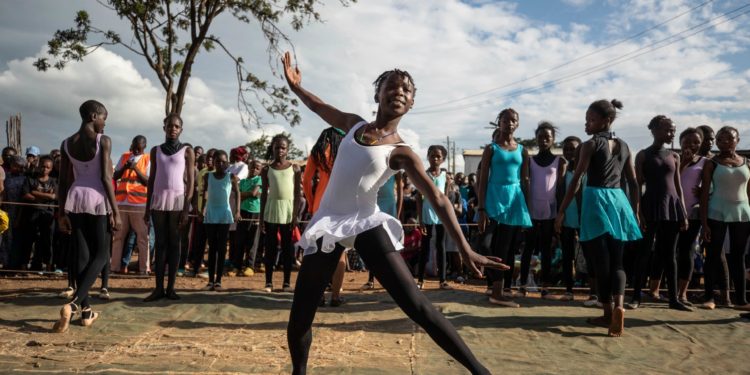By AL JAZEERA
As the sun sets on the narrow streets of Africa’s largest informal settlement, children hurry to change from daily clothes into pointe shoes and other ballet gear.
Fifteen-year-old Brenda Branice is among the dancers and can’t hide her joy. It’s time for the Christmas performance in Kibera, one of the busiest neighbourhoods of Kenya’s capital, Nairobi.
Instead of a stage, there is dust-covered plastic sheeting in an open field. The holidays have come early for residents as more than 100 local ballet students perform. They have been practicing every day after school.
“I am happy to be a ballerina,” Branice said. “I am also happy to entertain my friends.”
Eyeshadow sparkles. A girl’s braided hair swings. Some dancers go barefoot.
The mother of another ballerina, Monica Aoko, smiles as she watches the performance. Hundreds of residents, young and old, have come to the annual holiday event.
“This dance has given me a Christmas mood. Now I know Christmas is here,” Aoko said. She said she’s impressed knowing that when her daughter steps outside their home, she’s engaged in something meaningful.
The ballet project is run by Project Elimu, a community-driven non-profit that offers after-school arts education and a safe space to children in Kibera.
“Dance has the ability of triggering resilience, creativity, and also calmness in you as an individual,” said founder Michael Wamaya. “I want to use dance for emotional well-being of children here in Kibera.”







Discussion about this post